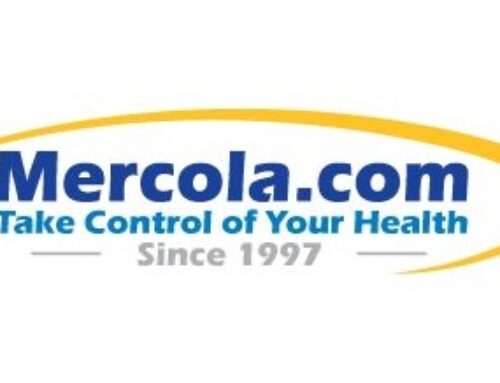Hello and Happy Holidays!
Some of us want to get together and share food one of these weekends, as a holiday “thing.” We would like to do it Dec. 8, but that is also a pizza day! I’m thinking if we could stretch ourselves to bring something extra we could share with the pizza Folks, it could be a good outreach! RA has an abundance of cheese right now, so we could have cheese sticks, maybe some of Frank’s or Amish mustard. . .
Salads would be good, raw desserts that are vegan, or with whipped cream, cottage cheese or yogurt, all pretty safe to share. Fish ceviche is probably confrontable, and maybe a bison or beef carpaccio. Chicken is way too radical.
I’d like to try and make a raw pizza, and share that. A nut crust? Or ground flax? Raw cheese and tomatoe, olives, pesto, pine nuts, some chopped greens. . .
What do you think?
NEWSLETTER Bacteria? When are they good?
Our Angelo’s eggs have not been refrigerated, and so are alive. In a nest, the eggs may have to wait for ten days before the chicken sets, and then they get to develop. I have read that they are good on our counters for up to four weeks. In Europe, they never refrigerate their eggs. Those wire chicken-shaped baskets our grandmas had are for the eggs to be on the counter.
I have had no problems keeping mine for three weeks or even more. But I do start checking them by floating them in water (if they float, they have gas and bacteria) or breaking them in a separate dish after the third week, just in case that egg was not fertile and died for some reason.
When the temperature has been hot, bad eggs do seem more common. Smelly, discolored, falling apart. Indications of bacterial breakdown. In some circles they are still edible, or even better for you (pre-digested)(I ate one once with no bad effects) as the Chinese used to bury eggs and dig them later to eat. They were called 100-year-old- eggs.
I’m sure the health department would disagree. But our eggs are from hens who are outside on the ground, and eat a lot of organic produce, plus organic seeds. Big difference. It also depends on how clean your own body is, and how good your personal gut bacteria are, and if your body is used to handling outside bacteria.
Refrigeration affects how they behave in cooking (old-time cooks could tell and even used different kinds of eggs for different foods.) If you are eating eggs raw for the nutritional benefit, they lose some benefit if they are refrigerated. This is true of all food when things are frozen. Much more is lost from cooking. (Enzymes are destroyed, and proteins are changed. Hence the color and flavor change.)
The cultured and regular butter will last a long time refrigerated. It becomes more cheese-like over time. Rarely you will get a spot of blue cheese mold, generally from contamination when you take some out of the jar. It can just be removed.
It really depends on your taste. I’m not sure it ever really gets unhealthy for you. It could go rancid if not kept cold.
Things go bad when they are cooked or partially cooked. Refrigeration slows it down. Freezing slows it even more. But neither of them stop it. The cells and enzymes are dead or damaged and bacteria are supposed to break them down. When raw, things like eggs, the foods are alive, and keep themselves from being broken down by bacteria, until they experience cell damage or death.
Butter is not alive, but when raw, the fats are not damaged, and tend to stay complete, not breaking down into other compounds.
Milk is a combination of live and raw fats, proteins and minerals and . . . bacteria! They are, in a healthy, pasture-fed cow, beneficial bacteria that actually make the milk inhospitable to the “bad” bacteria. Mark McAfee actually inoculated raw milk with “bad” bacteria and couldn’t find them four days later. He did this many times to prove a point. The current low bacterial count allowed in California raw milk is actually detrimental to the health of the milk, as it would naturally grow many more “good” bacteria after it entered a warm stomach, or milk pail. I really doubt if anyone ever got sick from milk until they were starving the cows or feeding them grains and newspaper and stuff, like they did when the big switch to pasteurized milk came about in the early 1900s.
And, these bacteria are vital to the health of the baby drinking it. Of course, it is best if a human gets those first bacteria from their human mother, but many of them are the same as those in cows, or close enough to give us a good start before our stomach acid gets going and makes implantation of bacteria in our gut more difficult. (That’s why people get fecal implants now, suppositories.)
Yes, and they are important to our health too! Bacteria are a huge part of our immune system. And we wonder why we have all these auto-immune disorders!
The War On Bacteria ends up being a war on us. You can help those bacteria by feeding them a Primal Diet, on that our bodies developed on, and add some resistant starches. We don’t digest them, but the bacteria do, and they make chemicals that are good for our brain!
I just love the way that we keep finding out how much more complex the body is—the gut-brain connections and all. We keep finding out that the old ways, of cooking, eating, and healing, have reason. Only tens or hundreds of thousands of years of trial and error and intelligent deduction!
Listen to your intuition. Listen to your body. You’ll do fine.
Healthfully Yours,
Marilyn At Ra




